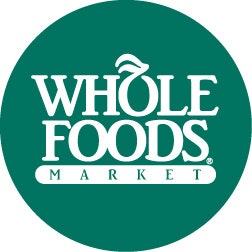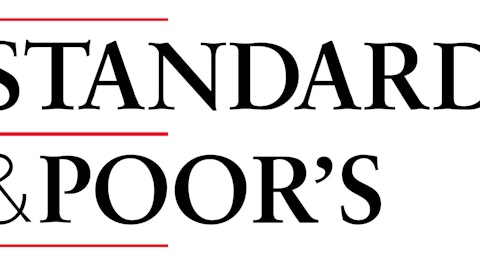“And, by the way, the bulk of the billions in Berkshire Hathaway has come from the better businesses. … And most of the other people who’ve made a lot of money have done so in high-quality businesses.”
— Charles Munger
At Tier 1 Investments, a Motley Fool Real-Money Portfolio, I seek out and invest in elite businesses. These include companies with the most valuable brands, best management, superior products, and strongest competitive advantages. I call these businesses Tier 1 enterprises, and Whole Foods Market, Inc. (NASDAQ:WFM) fits that description perfectly.
An aspirational brand
Many casual observers make the mistake of believing that Whole Foods is simply a high-priced grocery store, but it’s actually much more. Whole Foods is fast becoming a premium lifestyle brand and has earned a reputation as a purveyor of some of the healthiest foods and beverages on the market, at a time when consumers are beginning to care more and more about what they put into their bodies. These people aspire to live healthier lifestyles and are willing to pay a premium for the type of ultra-high-quality products that Whole Foods provides.
High-quality products and services
I could attempt to describe the differentiation between Whole Foods products and those of its competitors, but I believe Stock Advisor member Jason Hall explains it best here:
If I buy a packaged food product in Whole Foods, I can buy it with the assurance that it has been vetted to be from an ethical supplier, and that it won’t contain a bunch of artificial, non-natural ingredients. I will also know that the fresh produce is produced in sustainable ways, and that the suppliers are managing the land they use responsibly. And when it comes to the seafood, I can see at a glance if I am making the most responsible choice in terms of overfishing impact. Move to the meats, and I can see at a glance the conditions the animal was raised in.
I cannot go into another grocery chain in the U.S. that I know of and have anywhere close to this level [of] confidence that I am purchasing products from suppliers that have been vetted and are held to such high standards.
Combine this with Whole Foods’ amazing attention to detail when it comes to the manner in which it stores and displays its wares, the pleasant atmosphere of it stores, and its happy and helpful employees, and you begin to understand what separates Whole Foods from its peers.
A purpose-driven edge
One can see evidence of competitive advantage by looking at Whole Foods’ financials: Same-store sales growth has averaged 5.2% over the last five years and 8.1% over the last three years; gross margins are an industry-leading 35%; and return on capital is a strong 13.8%. But one of Whole Foods’ major competitive advantages lies beyond the numbers in the realm of a harder-to-value yet extremely important intangible aspect of the business, and that is the company’s purpose-driven culture.
Whole Foods has fully embraced the idea of conscious capitalism, and the company is much better for it. Whole Foods invests in its employees, and its happy team members go out of their way to please customers. Happy customers spend more, boosting Whole Foods’ sales and profits, which benefits shareholders. And Whole Foods also helps its local communities by giving a minimum of 5% of its profits every year to a wide variety of nonprofit organizations. In this way, all of Whole Foods’ stakeholders win. In addition, many consumers are becoming more socially conscious and want to patronize businesses that live up to these ideals. Whole Foods fits the bill; it truly is a business that is doing well by doing good.
A passionate and visionary leader
The creator and guardian of that purpose-driven culture is Whole Foods’ co-founder and co-CEO John Mackey. Mackey is unconventional and outspoken, and has had his share of missteps. But he is also a visionary with a strong passion for the business and a track record of long-term value creation. I also like that his nearly $80 million ownership stake in the business — and his $1-per-year salary — aligns his interests well with those of shareholders. Mackey co-founded the company in 1978, and today, he remains the type of leader I like to see at the helm of a Tier 1 enterprise.
Risks
Whole Foods, despite its strengths, is not invulnerable to competition. Retail titan Wal-Mart Stores, Inc. (NYSE:WMT) and large grocers Safeway Inc. (NYSE:SWY) and The Kroger Co. (NYSE:KR) have increased the amount of natural and organic foods that they offer in their stores to better compete with Whole Foods’ offerings. But while these threats are not to be overlooked, I believe that Whole Foods’ relentless focus on product quality has helped it earn a very high level of trust among its customers, which should help shield it from the competition. In addition, Whole Foods is a leader in the conscious capitalism movement, including areas such as treating employees well, which gives it a strong edge in the battle of public perception, particularly in relation to Wal-Mart. I’m more concerned with competition from private companies Wegmans and Trader Joe’s, and I will be watching closely for any signs that Whole Foods’ customers are beginning to defect to one or both of these competitors. But as it stands right now, there’s plenty of room for these smaller grocers to coexist and take share from their larger rivals.
Whole Foods is also not immune to global economic slowdowns. A pullback in consumer spending would hurt sales of the company’s premium-priced food and beverages as customers would likely cut back on their purchases or trade down to lower-cost competitors. However, markets operate in cycles and a downturn of this nature would likely be followed by an economic recovery. So I will likely view these types of pullbacks as opportunities to add to Tier 1’s position in Whole Foods, rather than a reason to sell.
Valuation
Whole Foods is not an inexpensive stock, but great growth companies rarely are. The company is trading at 31 times analysts’ earnings estimates for 2013, well above analysts’ expectations for 17% annualized growth in the next five years. I typically like to buy when those two metrics are more closely aligned, but I contend that Whole Foods is not as expensive as it first appears. I believe Whole Foods deserves a premium multiple due to the power of its brand, excellent leadership, and tremendous market opportunity. In fact, my discounted cash flow model returns a value of more than $105 per share, and with years of steady growth ahead as it marches toward its 1,000-store goal (it’s at 344 stores now), Whole Foods should provide healthy returns to shareholders for years, and possibly even decades, to come.
The Foolish bottom line
Whole Foods is an elite business that is well positioned to profit from the healthier-eating megatrend. Today, investors have the opportunity to buy shares in this outstanding founder-led growth company and profit handsomely as it fulfills its long-range potential. And so 24 hours after this article is published, I will be buying shares in the Tier 1 Real-Money Portfolio.
The article Whole Foods Is Tier 1 originally appeared on Fool.com.
Joe Tenebruso manages a Real-Money Portfolio for The Motley Fool and is an analyst on the Fool’s Stock Advisor and Supernova premium service teams. You can connect with him on Twitter @Tier1Investor. Joe has no position in any stocks mentioned. The Motley Fool recommends Berkshire Hathaway and Whole Foods Market. The Motley Fool owns shares of Berkshire Hathaway and Whole Foods Market.
Copyright © 1995 – 2013 The Motley Fool, LLC. All rights reserved. The Motley Fool has a disclosure policy.


